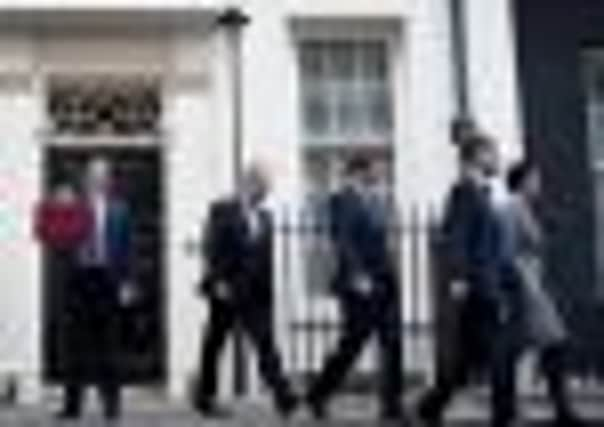Analysis: Tories have become new flat-earthers


And that is if they all decide to sell their houses. In November 2011, a mere 121 homes were sold that were worth £2 million or more, 98 of them in London.
Mr Osborne presented this as a measured, pragmatic Budget, but his road of travel is clear.
Advertisement
Hide AdAdvertisement
Hide AdMillions of taxpayers may have had their thresholds raised, but massive public spending cuts and welfare cuts are coming, of which he said absolutely not one word.
Pensioners are being hit by having their tax thresholds frozen. “Middle Britain” is seeing its income squeezed as the 40 per cent tax rate draws in more and more people, while he obsesses about the tiny group of super-rich taxpayers.
Why this is happening is not an accident of some supposedly insensitive Chancellor. It is a direct product of a broken British political system, and a Conservative Party entrenched in the south-east of England which knows little directly of the north of England, Scotland and other parts of the UK.
Who they listen to is even more narrow and unrepresentative.
David Cameron, Osborne and the Tories, after their successful rebranding of themselves as “compassionate Conservatives”, now interpret “modernisation” of the party and country as being the “restoration” and acceleration of the Britain pre-crash, the liquid economy and democracy of focusing on the global winners.
In this he is aided by a merry band of revolutionaries who are attracted to the flat-tax revolution spreading round emerging economies such as the former Soviet bloc.
With their obsession with the Laffer Curve they are the new flat-earthers, who constantly cite that the lower the taxes on the rich, the bigger the take.
This misses that in a completely unequal economy, where for example the richest 1 per cent had all the income and wealth, they would obviously pay more tax than in a more equal society.
Advertisement
Hide AdAdvertisement
Hide AdBritish politics are now shaped by a set of dynamics that have been clear from the 1980s, the Tories unashamedly placing themselves as the party of London, the south-east and the City.
Cameron and Osborne are taking a bigger gamble than Nigel Lawson, who rewrote the tax book in 1987 and 1988 on the back of rising incomes. This time the Tories have the Liberal Democrats as their human shields to provide some progressive cover.
There are some welcome initiatives in the Budget. We did see the final agreement between the Scottish Government and UK government over the Scotland Bill and the limited, flawed fiscal autonomy it proposes.
Yet in reality, this Budget makes the case for Scotland taking as many economic levers into its own hands as it can, to counter the truncating and distortive effects of Westminster politics.
But just as importantly, it calls out for developing alternative economic ideas which break with the failed “Britain plc” and articulate more than just making our own small Scottish version of this world.